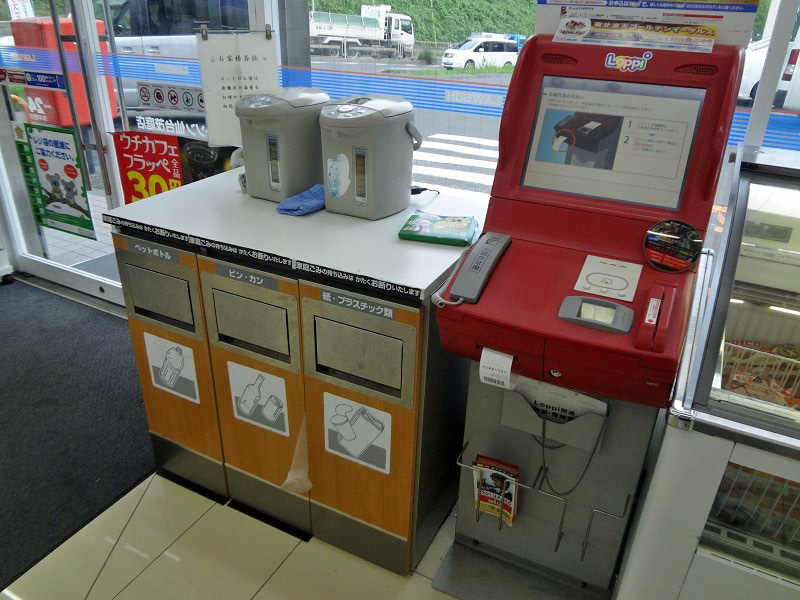I’ve lived in Japan since the first George Bush presidency, coming here to teach ESL “for a year or two” to complete my Japanese studies. Happily, I met my wife, then this cool thing called The Internet happened, and I knew my moment had come to do something more important in the wider world. During my time here, I’ve met a thousand or more Japanese people of all ages, and worked alongside perhaps more than a hundred over my long years of operating J-List, JAST USA, and J18 Publishing. Here’s a blog post with 11 things about Japanese people you probably didn’t know!

If You Want to Meet a Lot of Japanese People, Teach ESL
While I would never, ever recommend anyone consider teaching English as a Second Language in Japan (it’s a terrible industry, and the salaries are actually lower than when I started J-List 25 years ago), I am really glad I worked all those years as a teacher. I had a lot of fun helping my students learn because I’m passionate about language. The best thing about it was getting to meet a huge swath of Japanese people of all ages.
There were shakai-jin, that is, company employees, catching an hour of ESL class after the workday was done. Children learn English because their parents thought it will help their kids speak English someday. (It never did.) Elderly people learn English to keep their brains sharp. Even fabulously wealthy people! I taught ESL to the wife of the former president of the Sapporo ramen company, and her house was so nice, it was like visiting a temple in Kyoto.

Japanese People Don’t Litter… But Not For the Reasons You Think
Everyone knows that Japan is a fabulously clean place, where everyone responsibly puts litter in the appropriate trash bin, separating burnables, plastics, bottles, and cans. Japan is widely viewed as one of the cleanest countries in the world… though of course there’s more to a country than what you see visiting popular sightseeing spots.
One of the biggest factors at work in Japanese society is 人の目 hito no me, or the Eyes of Others. Basically, the reason Japan is such a happy and harmonious place is that everyone is in sync with what everyone else around them is doing because they don’t want to stand out and be judged. The reason Japanese nearly always put litter in its place or wear masks when told to do so by authorities is because of this important social engine, and the desire to avoid “public disesteem.”
The truth is that there is litter in Japan, and every time I take one of my daily walks through the rice fields around J-List, I see cans and bottles that have been discarded, probably by students passing through or perhaps tossed out of cars. Convenience stores have largely moved their trash cans inside to avoid people bringing their home garbage to dispose of. As a friend of mine observed, if a Japanese person thinks no one is watching, he’ll dispose of a refrigerator in a river.

Not All Japanese Study For 12 Hours a Day… and Some are Downright Lazy
One of the strangest times in my family was when my son had to undergo a year of intense study for his juken, his entrance exam into high school. For an entire year, our family altered our lives to support my son in his studies, ferrying him to a special cram school and avoiding all leisure activities, since he couldn’t partake. We even skipped the Harry Potter movie that came out that year, waiting until the exams were over and my son could watch, too. Happily, he got into a high school that was attached to Waseda University so he could get into university without doing that intense study again.
While a lot of Japanese are extremely studious, naturally a lot are not, as I learned when I became a teacher at a trade school and learned the term suberi-dome gakkou, or a lower-ranked school whose stated purpose was to “stop the slide” of students who failed to get into famous universities, so they could at least get an education at a lower-tier school. And many students opt not to go to high school at all, despite the intense social stigma in an education-focused country like Japan.

Japanese Are Very Hardworking… But Are the Least Productive Industrialized Nation
While sad news reports of how Japanese people work so much they’re subject to karoshi, or death from overwork, these are extreme cases and the reality is a bit more complex. One thing that Japanese people often excel at is working extremely long hours but being extremely unproductive during that time.
In economic terms, productivity is the value of useful goods or services you generate in an hour, which is enhanced by good social policies and technology. The countries with the highest GDP per hour are Luxembourg, Ireland, Norway, Belgium, and the U.S., but Japan is… all the way down in number 20, sandwiched between Iceland and New Zealand.
Want to know the real reasons behind Japan’s low birth rate? Here’s a blog post!

Japanese Are Very Punctual
The Japanese might be the most punctual people on the planet, and I pity them for having to deal with foreigners like me. My wife knows that in “American time,” ten minutes means an hour, and an hour means three hours.

Japanese Are Extremely Risk Averse
One thing I’ve learned during my time in Japan is that Japanese people are very risk-averse, and if there’s even a small possibility of a bad outcome, they will generally choose the safe route. Sadly this is a major social problem in Japan, a country with an extremely low level of entrepreneurial spirit, especially among females. Compared with the more energetic and vibrant economies in Asia, Japan’s startup scene is frightfully low.

Japanese People Sometimes get Confused When We Deviate from Established Patterns
When a Japanese person meets a foreigner, their butts probably tense up a little, because they have no idea what crazy or random thing we’re likely to do… and they’re not wrong. Like rapidly speaking at them in foreign languages, or accidentally leaving a box of laserdiscs out in the rain then taking them back to the store to return them as “defective” like a friend of mine did.

Japanese Unironically Point With Their Middle Finger
The Japanese learned the Western middle finger gesture at the end of the 80s, and it shows up in anime from time to time. But unrelated to that, Japanese will often point to things with their middle finger, which would be interpreted as a “stealth fuck you” by Westerners, but they aren’t aware of that at all.

Japan is Not As Homogenous As You Think
Everyone knows Japan is the most homogenous nation on Earth, with 98% of the country reporting themselves as “Japanese” in the most recent national census. But this represents households reporting their nationality, i.e. what country they’re citizens of, and ignores the fact that many of these people might be of Korean, Chinese, Filipino or Caucasian stock (in the case of my own kids). In Tokyo, millions of people from all countries are doing important jobs that need doing.
Back when I was a teacher, I had plenty of students who were zainichi South or North Korean, that is, born in Japan and speaking perfect Japanese but choosing to maintain citizenship of another country for historical reasons. My kids had students of mixed race in their classes, and no one even commented on it. Currently, 4.3% of married couples in Japan are international marriages each year, and a lot of Japanese men and women are interested in the idea of marrying someone from another country.

They Love To Know What Foreigners Think
Japan has been called “the only country that cares what its foreigners think,” and I believe this is true. From books about Japanese society written by foreigners to a TV show that invites bilingual foreigners from all over the world to rant about what aspects of Japanese society feel strange to them, this fascination seems to be part of the Japanese national character. Currently one of the most popular shows on TV is Why Did You Come to Japan?, which interviews random foreigners arriving at Narita Airport and, if their story is sufficiently unique or interesting, follows them around during their trip. J-List customers have been on the show, too!
In the Japanese otaku internet world, there’s a whole genre of Japanese discussion online called 外人反応スレ or gaijin reaction thread where they translate what foreigners are saying about anime, wanting to know which anime girl we’re obsessing over this season, or what we think of the latest Attack on Titan episode.
Why do foreign otakus think Japan is as it appears in late-night anime? Here’s a blog post exploring this topic!

Japanese People Often Have a “Gaijin Complex”
If you watch enough anime, you’ll have picked up on the trope of a shy stereotypical Japanese character who’s surrounded by flamboyant foreigners with flowing blonde hair, huge breasts (if female), and possessing the ability to live lives free of all the oppressive social rules Japanese must follow. This “straight man” is usually at his wit’s end trying to guess what these crazy foreigners will do next. This feels like a fun anime trope… but is usually quite close to reality.

Socially, Japan Follows a Decade Behind Europe and the U.S.
I’ve heard repeatedly from the Japanese that another aspect of their national character is that they’re afraid to take the lead on important social issues, and will “tap on a stone bridge before crossing” to make sure the bridge is safe…meaning that they’ll let Europe and America break ground on important social issues then follow along afterward once they know it’s safe. And it seems to be true. Whenever a major banking reform or social change happens overseas, I tell my wife, “This will happen in Japan in a decade,” and I’m usually right, as when Japan banned smoking in public places exactly 10 years after California did. Maybe there’s hope that socially conservative Japan will get around to de-criminalizing marijuana one of these years? I wouldn’t hold my breath on that one…
Thanks for reading this post exploring 11 things you didn’t know about the Japanese people. Got any questions, to suggestions for posts to write about? Post them below, or tell us on Twitter!
J-List has been on a positive tear, adding tons of great new naughty products to the site to help get you through these stressful days. This week we’ve added a ton of great new ero toys, lotion and other innovative ways to take the edge off. Browse now, and enjoy our new lower shipping rates and $25 J-List Shipping Support instant coupon on orders of $150 or more coming from Japan!















